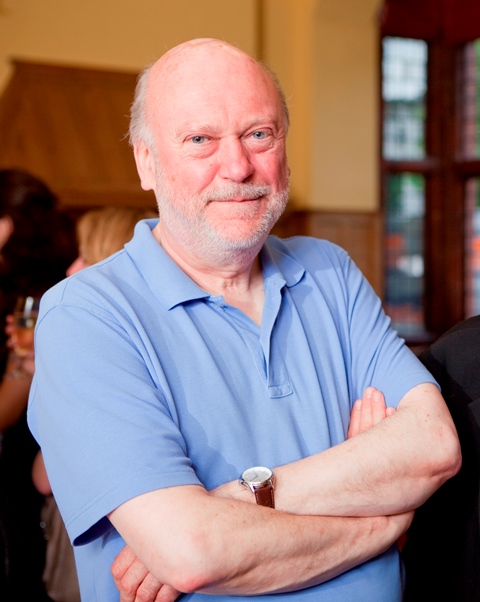A former journalism teacher reputed to have trained more journalists than anyone else in the UK has died aged 74, prompting tributes from some of the biggest names in the industry.
David English, who established Cardiff University’s School of Journalism as one of the leading colleges in the country, died after a long period of ill-health.
By the time David retired as head of the School’s journalism course in 2015, he had launched more than 1,000 students into the profession
Some of his most illustrious former pupils have paid tribute following the news of his death.

David pictured at the time of his retirement in 2015.
Posting on X, Kevin Maguire, associate editor of the Daily Mirror, said: “Sad to learn my Cardiff University journalism school tutor, David English, has died. Owe him a lot, as do many others in the media.
“David taught more journalists than anybody else. He laughed when I half-joked some considered that a crime. RIP.”
Former BBC political correspondent Laura Trevelyan wrote: “RIP David English, tutor at Cardiff Journalism School. He trained thousands in the essential skills of journalism. I owe him so much.”
And Cardiff University colleague and former ITN editor-in-chief Professor Richard Tait said: “He helped make Cardiff what its founder Tom Hopkinson had always hoped it would become – the best place in the country to learn to be a journalist.”
After graduating from Oxford, David initially joined Thomson Regional Newspapers, working on the Belfast Telegraph and The Journal in Newcastle.
But he was to find his true vocation in journalism training, working firstly for TRN’s Editorial Training Centre in Cardiff and then for the University’s Centre for Journalism, now the School of Journalism, Media and Culture.
The current head of the School Dr Matt Walsh said: “David’s contribution to journalism is huge. Both his rigour and his kindness left a lasting impression on the students he taught and this has been reflected in the many tributes from leading journalists since his death.
“The School of Journalism, Media and Culture owes him a huge debt of gratitude for his work over many decades.”
Joanne Forbes, chief executive of the NCTJ, said: “David English, who we at the NCTJ remember best for his command of public affairs and his unwavering commitment to his students, made an outstanding contribution to journalism training at Cardiff University.
“His shoes were very tough to fill but I was in Cardiff just last week and it was heartening to see his legacy lives on in the current teaching team under the leadership of Cathy Duncan and previously Mike Hill.”
Professor Tait added: “David was a fine journalist himself, with a nose for a good story and a wicked sense of humour. The secret of his success is that more than anything he wanted his students to get to that wonderful crossover moment where, as he used to say, ‘you’re thinking like journalists now’.
“And writing like journalists – his red inked subbing pen was pitiless. Woe betide anyone with ‘That’ in her or his copy – regardless of anyone’s rules of grammar, it was ‘Which’ – or nothing.
“He loved the Cardiff Blues, hated cat stories and dined out on his students’ scoops such as revealing the existence of the red light district off the Penarth Road which the police tolerated for the 1998 European Summit in Cardiff and the Rugby World Cup the following year.
“I worked closely with David for more than a decade and one moment each year summed up for me his contribution to British journalism. It came towards the end of the second semester when I’d come into his office and enquire as casually as I could manage how things were going on the jobs front.
“From the middle of an enormous pile of apparently (but only apparently) random papers on his desk a sheet of A4 would appear. On it were the names of 25, 28 or even 30 young women and men.
“Opposite each of them was the name of a good place to start your career – newsrooms where David knew every one his students would get the best possible support. A great teacher and a lovely man.”

 Follow HTFP on Twitter
Follow HTFP on Twitter